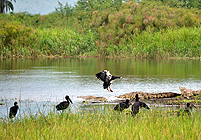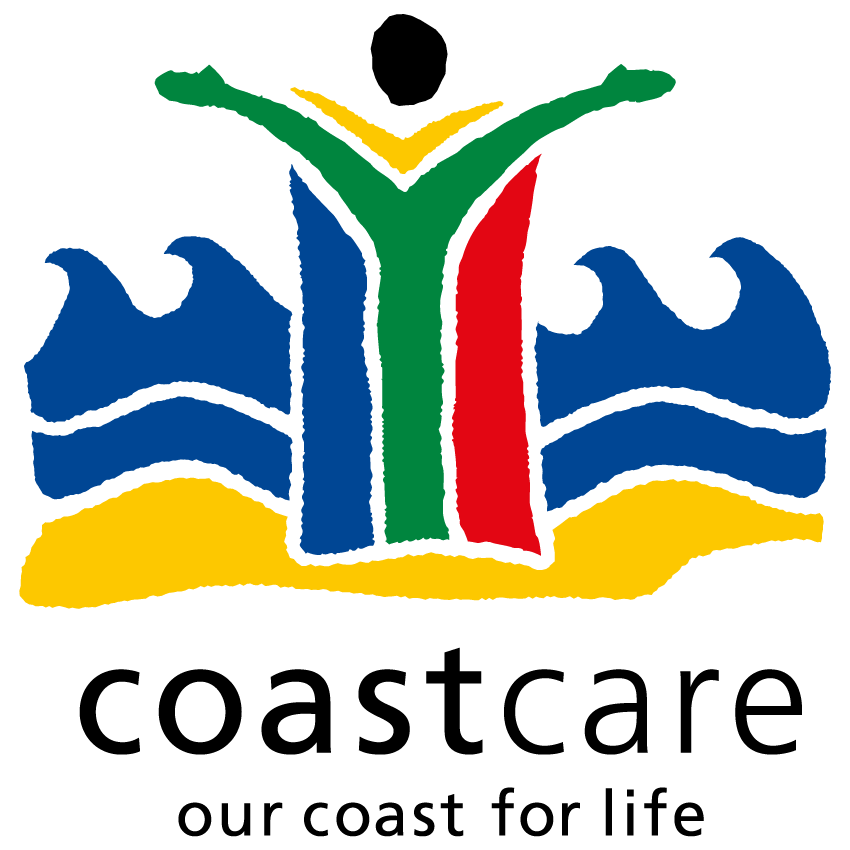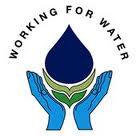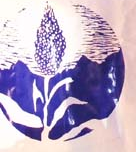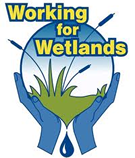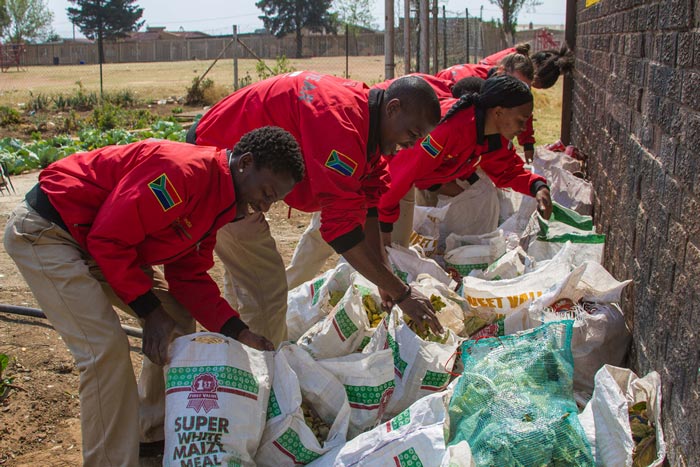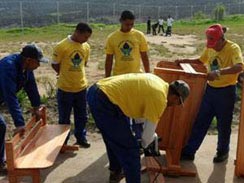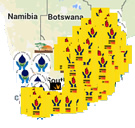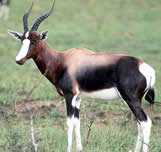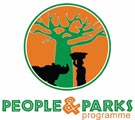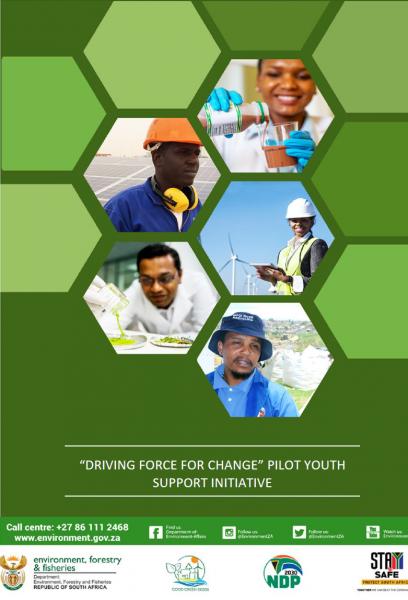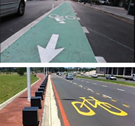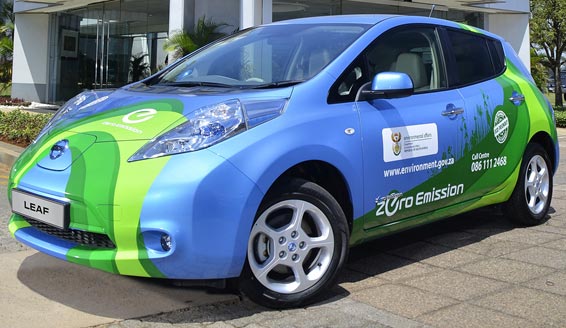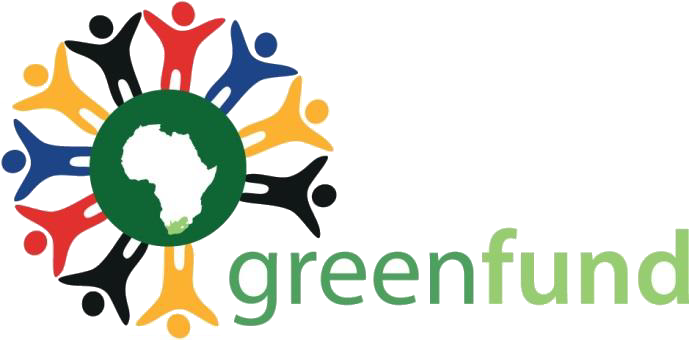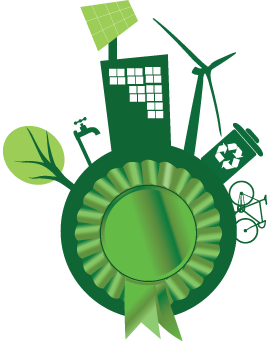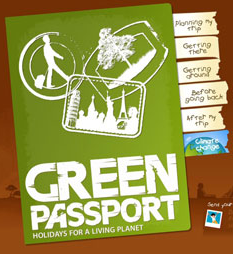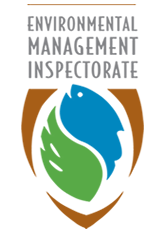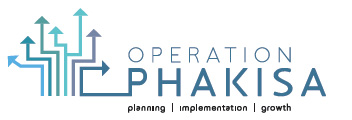Environmental Programmes Projects and programmes
The department has, over the years, continued to make a notable contribution in creating employment and skill development opportunities through implementation of the environment sector employment programmes broadly.
In all 12 priority government outcomes, job creation features as a priority output. In the context of this imperative and the departmental mandate on ensuring benefit from environmental assets which, presents an opportunity to contribute significantly to job creation, social inclusion and the low carbon green economy; the department is responsible for the implementation of environmental Expanded Public Works Programme (EPWP) and the National Green Fund projects among others.
Newly launched project / programme
Working for Forests
Working for Forests would aim to quantify the shortfall in the supply of woodland and natural forest resources and take this into account in its overall development strategy/approach. The BBBEE Forestry charter acknowledges the fact that our timber resources is under pressure and make allowance and indicate that within one year of the charter being signed that the department will work together with the industry to implement a saw log growing strategy.
Working for Ecosystems
Working for Ecosystems aims to reverse environmental degradation through ecological restoration and maintenance programmes. It aims to regain natural habitat composition, structure and function and thereby enhance ecosystem services, such as: carbon sequestration, water regulation and purification, reducing the risk of natural disasters by improving landscape/catchment stability and resilience.
Working for the Coast
The Working for the Coast Programme (WftC) of the Department of Forestry, Fisheries and the Environment was established to help deal with some of the aforementioned challenges in line with the Integrated Coastal Management Act 28 of 2008. The WftC programme is informed by the broader Expanded Public Works Pogramme which is using labour intensive methods in its implementation.
Working for Water
WfW considers the development of people as an essential element of environmental conservation. Short-term contracs jobs created through the clearing activities are undertaken, with the emphasis on endeavouring to recruite women (the target is 60%), youth (20%) and disabled (5%). Creating an enabling environment for skills training, it is investing in the development of communities wherever it works. Implementing HIV and Aids projects and other socio- development initiatives are important objectives.
Working for Land
Working for Land is an essential programme of the Natural Resource Management Programmes (NRMP). The key objective of the programme is to ensure that degraded ecosystems are restored to their formal or original state wherein they are able to maintain or support the natural species of that system.
Working for Wetlands
Working for Wetlands is a joint initiative of the Department of Forestry, Fisheries and the Environment (DFFE), Water and Sanitation (DWS) previously known as Water Affairs (DWA) and Agriculture, Forestry and Fisheries (DAFF). This illustration of cooperative governance and partnerships comes to life through projects that focus on the rehabilitation, wise use and protection of wetlands in a manner that maximises employment creation, supports small businesses and transfers relevant and marketable skills to beneficiaries.
Working on Fire
Working on Fire (WoF) was launched in September 2003 as part of the South African Government's initiative to create jobs and to alleviate poverty. Today WoF employs more than 5000 young men and women who have been fully trained as veld and forest fire fighters and are stationed in more than 200 teams throughout South Africa. WoF addresses the prevention and control of Wildland fires to enhance the sustainability and protection of life, poverty and the environment through the implementation of Integrated Fire Management (IFM) practices.
Working on Waste
Working on Waste is one of the initiatives by the Department of Forestry, Fisheries and the Environment implemented under the auspices of the Expanded Public Works Programme (EPWP). The initiative is a proactive preventative measure that recognises that inadequate waste services may lead to litter which is not only visual pollution but may lead to health hazards and environmental degradation.
Youth Environmental Services (YES) Programme
Firstly, the Youth Environmental Services (YES) Programme set to benefit 2700 young people over a period of three years. Upon exiting the programme these young people are set to be placed in either permanent employment or further training institutions.
Eco Furniture
The Natural Resource Management Programme is seeking to establish 17 Value-added Industry Eco-Furniture Factories across the country, in partnership with the Economic Development Department.
Maps of NRM priority areas
NRM Programmes ensure that South Africa addresses its responsibilities relating to water resource management, biological diversity and the functioning of natural systems whilst ensuring meaningful livelihood opportunities are supported for those employed on these programmes.
Bioprospecting Economy
A bioprospecting commercial industry value chain was developed showing the key role players, from the resource to the end user. This value chain was used to describe the indigenous plant resources and bee products currently utilised in the formal commercial bioprospecting sector of South Africa.
Business and Biodiversity in South Africa
The South African National Development Plan: Vision 2030 confirms that national economic growth is dependent on the environmental sustainability of our proposed development path. In order to make the necessary shift, the political importance of biodiversity needs to be understood at the highest levels.
Biodiversity Economy
The Wildlife Economy in South Africa is centred on the sustainable utilisation of indigenous biological resources including biodiversity-derived products for trade and bio-prospecting, the hunting industry, agriculture and agro processing of indigenous crops and vegetables and livestock breeds and indigenous marine resources and fisheries. Wildlife Economy focus areas centred on the socio-economic benefits of eco-tourism, co-managed conservation areas and ancillary services to protected areas.
The Access and Benefit-Sharing (BABS) Clearing House of the Republic of South Africa
The South African Access and Benefit-Sharing (BABS) Clearing House is the information node on Access to Genetic Resources and the Fair and Equitable Sharing of Benefits Arising from their Utilization (ABS). Its aim is to facilitate the exchange of scientific, technical and legal information on ABS between parties and the general public.
People and Parks
The overall aim of the People and Parks Programme is to address issues at the interface between conservation and communities in particular the realization of tangible benefits by communities who were previously displaced to pave way for the establishment of protected areas.
"Conservation for the people, with the people"
Rhino Dialogues South Africa
Rhino Dialogues consist of the views of organisations and individuals with an interest and stake in the sustainable conservation of the rhino population in South Africa. The aim of these dialogues is solicit well-considered views on how best to secure the protection, safety and sustainable conservation of the rhinos in the country.
Intergovernmental Platform on Biodiversity and Ecosystem Services (IPBES)
The South African Government through its Department of Forestry, Fisheries and the Environment is committed to evidence based decision making through strengthening the science policy interface South Africa has supported the establishment of the Intergovernmental Science-Policy Platform on Biodiversity and Ecosystem Services. The objective is to strengthen the science-policy interface for biodiversity and ecosystem services for the conservation and sustainable use of biodiversity, long-term human wellbeing, and sustainable development.
Man and the Biosphere Reserves (MAB) Programme
The MAB Programme was launched in the early 1970s, and was substantially revised in 1995 with the adoption by the United Nations Education, Scientific and Cultural Organisation (UNESCO) General Conference of the Seville Strategy and the Statutory Framework of the World Network of Biosphere Reserves (WNBR). The MAB Programme proposes an interdisciplinary research agenda and capacity building initiative aiming to improve the relationship of people with their environment globally.
Transfrontier Conservation Areas
The establishment and development of Transfrontier Conservation Areas as a vehicle for conservation and sustainable use of biological and cultural resources has the objective of facilitating and promoting regional peace, co-operation and socio-economic development. It taps on the notion that nature knows no boundaries.
Sustainable development: green economy / climate change / air quality / SEAs
The country’s sustainable development vision is outlined in the National Framework for Sustainable Development (2008) as “South Africa aspires to be a sustainable, economically prosperous and self-reliant nation state that safeguards its democracy by meeting the fundamental human needs of its people, by managing its limited ecological resources responsibly for current and future generations, and by advancing efficient and effective integrated planning and governance through national, regional and global collaboration”.
“Driving Force for Change” pilot youth support initiative
One of the challenges identified that the youth face is obtaining the necessary support to translate these ideas into proposals that could be presented for financial support to make them happen. Recognising this challenge the department has developed a dedicated pilot support initiative for the youth and youth led organisations. Through the pilot initiative, the department will be providing project preparation development support equivalent to ZAR 1 million to successful applicants. Through this pilot initiative we hope to provide the support to enable the youth to becoming that "Driving Force for Change" and develop and lead environmental initiatives that puts us on the path of a low carbon and climate resilient development pathway.
Non-Motorized Transport - South Africa
In recent decades, South African transport policy - as in many other countries - almost exclusively prioritized the extension of its road network, which in turn promoted private transport also in cities. The expansion of public transport and infrastructure for non-motorized transport, such as by bicycle or on foot, has been neglected in cities. Approximately 80% of South Africans are dependent on public transportation, which usually exists but often only in the form of privately owned minibuses.
Strategic Environmental Assessment for the Square Kilometre Array (SKA) Phase 1 South Africa
The Department of Forestry, Fisheries and the Environment (DFFE) in partnership with Department of Science and Technology (DST) and the Square Kilometre Array (SKA) South Africa (SA) have commissioned the Council for Scientific and Industrial Research (CSIR) to undertake a Strategic Environmental Assessment* (SEA) for SKA Phase 1 in South Africa.
Green Cars
Our Minister successfully launched the DFFE Green Cars on 26 February 2013 in partnership with Nissan South Africa for a period of three years. The department is excited to have launched this ground breaking DFFE Green Cars pilot initiative, a first of its kind in South Africa, changing the face of automobiles in the country and Africa.
The Green Fund
The Department of Forestry, Fisheries and the Environment (DFFE) announced the establishment of a Green Fund in South Africa for which R800 million has been made available by National Treasury from April 2012 to March 2014. The Development Bank of Southern Africa (DBSA) is the designated implementing agency for the Green Fund.
Donor funded projects
The Department of Forestry, Fisheries and the Environment is responsible for the protection and management of South Africa’s natural resources in a manner that fosters sustainability and creates a healthy living environment for all the citizens of the country. To this end, the department adheres to and promotes strong environmental governance in order to address the environmental and development challenges that confront our communities.
Greenest Municipality Competition (GMC)
The Cleanest Town Competition (CTC) was initiated in 2001 with a primary focus in implementing the National Waste Management Strategy. The key elements were reducing, recycling and reusing waste materials. Although the Cleanest Town Competition was fairly successful in achieving its primary objectives, developments within the greening movement require the modifications of the concept to embody other elements which are outside the waste management category.
Green Passport
The Green Passport Campaign is an initiative of the International Task Force on Sustainable Tourism Development, firmly rooted in the move to accelerate a global shift towards sustainable consumption and production (SCP) that emerged from the World Summit on Sustainable Development (WSSD), held in Johannesburg in 2002.
Greening and Open Space
The Greening and Open Space Management intends to address the poorly managed areas such as unmanaged open spaces, illegal dump sites, eroded areas and areas overgrown with vegetation. These areas do not only attract poor waste management, criminal activities and health hazards. The transformation of these areas into recreational areas for the communities to relax and enjoy the natural environment.
Biomass Energy
The Concept of Biomass to Energy is still at its infancy in South Africa but holds promise for the future sustainable development. Biomass is generally regarded as any carbon based material such as animal (including human) waste, plant material, food waste, algae, industrial waste such as reclaimed woody material such as planks, etc. which when processed can produce organic fuels
Mediation and Law Enforcement/EMI
Appeals and Legal Review
The Directorate: Appeals and Legal Review is responsible for administering appeals and making recommendations on appeals to the Minister of Environmental Affairs. Section 43 (1)(A) of NEMA further determines that any person may appeal to the Minister against a decision made in terms of NEMA or any of the SEMAs by the Minister responsible for mineral resources or any person acting under that Minister’s delegated authority.
EMI School Art competition
The National Art Competition for primary school learners was held in April and May 2016 to increase awareness about the harmful effects of certain human activities on the environment. The competition entitled “The Future in Our Hands: Helping the Green Scorpions Protect Our Planet” aimed at increasing collaboration between the Department’s Environmental Management Inspectorate (EMI), commonly known as the Green Scorpions.
Environment Sector Conflict and Dispute Resolution
Chapter 4 of the National Environmental Management Act, 107 of 1998 (Act no. 107 of 1998) (NEMA), authorises the use of alternative dispute resolution mechanisms so as to ensure fair decision making and effective conflict management. The Department of Forestry, Fisheries and the Environment is mandated to perform the functions prescribed in terms of Chapter 4 of NEMA, thus to create a framework for integrated environmental planning and management, and ensure co-ordination within government and with outside stakeholders.
Environmental Management Inspectorate (EMI)
The Department of Forestry, Fisheries and the Environment (DFFE), provincial environmental departments and other provincial and municipal organs of the state employ Environmental Management Inspectorates, a network of environmental enforcement officials from various national, provincial and municipal government departments created by National Environmental Management Act (NEMA) of 2008.
Allocation process for boat-based whale watching and white shark cage diving operating permits
Since 2011, permitting of boat-based whale watching and white shark cage diving operations has been carried out by the Department; after completion of a comprehensive and lengthy allocation process. Permits were allocated in terms of section 13 of the Marine Living Resources Act, 1998 (MLRA) and were renewable annually for a period of five (5) years. Thus, permitting of BBWW and WSCD is recognized as a significant tool to promote conservation of species such as whales, dolphins and sharks while supporting sustainable, nature-based tourism.
Operation Phakisa
Operation Phakisa represents that new spirit of moving faster in meeting government’s targets. South African Government’s starting point was that South Africa is surrounded by a vast ocean which has not fully taken advantage of the immense potential of this untapped resource. The oceans have the potential to contribute up to 177 billion rand to the gross domestic product (GDP) and create just over one million jobs by 2033.
Gender Mainstreaming / Land Degradation
Environment Sector Gender Mainstreaming
The Department of Forestry, Fisheries and the Environment (DFFE) took a decision during 2013/ 2014 Financial Year to develop a gender strategy to be compliant to provisions of the Sector Gender Framework and the strategy, the Constitution (Act No. 108 of 1996), Women’s Charter for Effective Equality, 1994, the National Framework for Women Empowerment and Gender Equality, 2000 and the Strategic Framework for Gender Equality within the Public Service, 2006.



